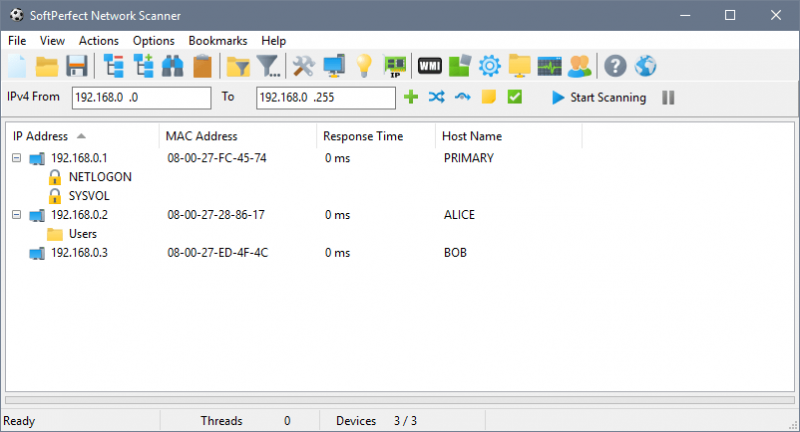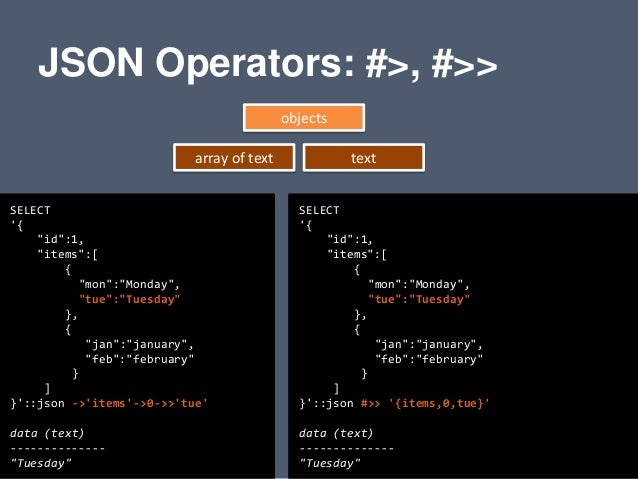

It is therefore not possible for the JSON types to conform rigidly to the JSON specification unless the database encoding is UTF8. RFC 7159 specifies that JSON strings should be encoded in UTF8.

In general, most applications should prefer to store JSON data as jsonb, unless there are quite specialized needs, such as legacy assumptions about ordering of object keys. If duplicate keys are specified in the input, only the last value is kept. (The processing functions consider the last value as the operative one.) By contrast, jsonb does not preserve white space, does not preserve the order of object keys, and does not keep duplicate object keys. Also, if a JSON object within the value contains the same key more than once, all the key/value pairs are kept. jsonb also supports indexing, which can be a significant advantage.īecause the json type stores an exact copy of the input text, it will preserve semantically-insignificant white space between tokens, as well as the order of keys within JSON objects. The json data type stores an exact copy of the input text, which processing functions must reparse on each execution while jsonb data is stored in a decomposed binary format that makes it slightly slower to input due to added conversion overhead, but significantly faster to process, since no reparsing is needed. The major practical difference is one of efficiency. The json and jsonb data types accept almost identical sets of values as input. To implement efficient query mechanisms for these data types, PostgreSQL also provides the jsonpath data type described in Section 8.14.7. PostgreSQL offers two types for storing JSON data: json and jsonb. There are also assorted JSON-specific functions and operators available for data stored in these data types see Section 9.16. Such data can also be stored as text, but the JSON data types have the advantage of enforcing that each stored value is valid according to the JSON rules. JSON data types are for storing JSON (JavaScript Object Notation) data, as specified in RFC 7159. This also provides a seamless relationship between relational and non-relational data structures.8.14.1. In conclusion, PostgreSQL support for JSON provides developers with the ability to simplify data models, enhance application performance, and so much more. This is just an example of the many ways in which you can query and manipulate JSON arrays using the JSON operators provided by PostgreSQL. Multiple key-value pairs can be added in an object, separated with a comma.Įxample of a JSON object: ]' :: jsonb Whenever a key-value pair is enclosed in curly brackets it becomes an object and can be treated as a single unit. Objects: An object is a key-value pair or pairs enclosed in curly brackets. Here’s an example of a key-value pair “email”: “ “Email” here is the key, while “ represents the value. Key-Value Pairs: JSON data is written in key-value pairs surrounded by quotes.

It is pretty similar to HTML or XML and was made for applications to easily read JSON files. It is a common way to store data, especially in web applications. JSON stands for JavaScript Object Notation.
JSON WITH POSTGRESQL COMMANDS HOW TO
We’ll also go into the basics of storing JSON data in PostgreSQL, how to query JSON data in PostgreSQL to make it readily accessible, and finally, you’ll learn about working with JSON arrays. In this comprehensive guide, you will learn about JSON functions and operators in PostgreSQL. JSON file support was first introduced in PostgreSQL v9.2, and with every new release, steady improvements are being made. It offers advanced features such as support for JSON and other non-relational data types as well as support for spatial data.

PostgreSQL is known for its robustness, reliability, and scalability, making it a popular choice for large and complex database applications. It was initially created as a successor to the Ingres database system and was later named "PostgreSQL" (short for "Post-Ingres SQL"). PostgreSQL is a powerful open-source relational database management system (RDBMS).


 0 kommentar(er)
0 kommentar(er)
